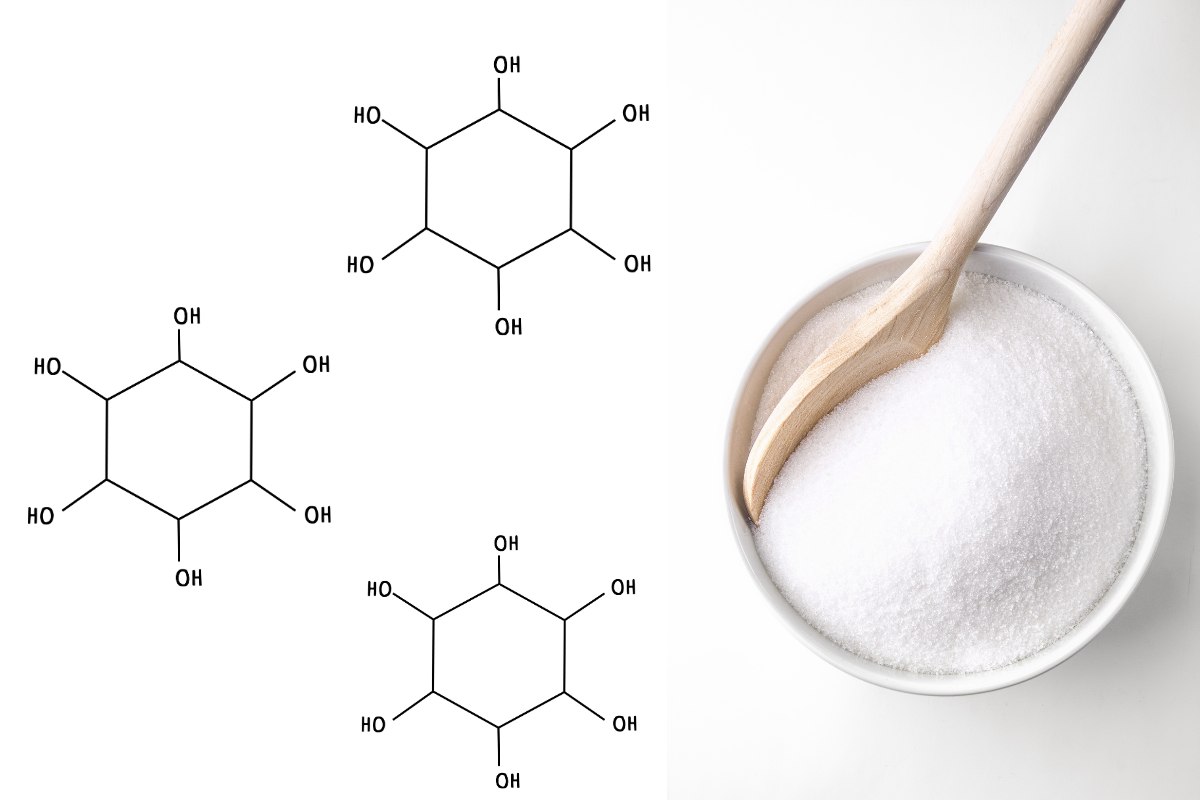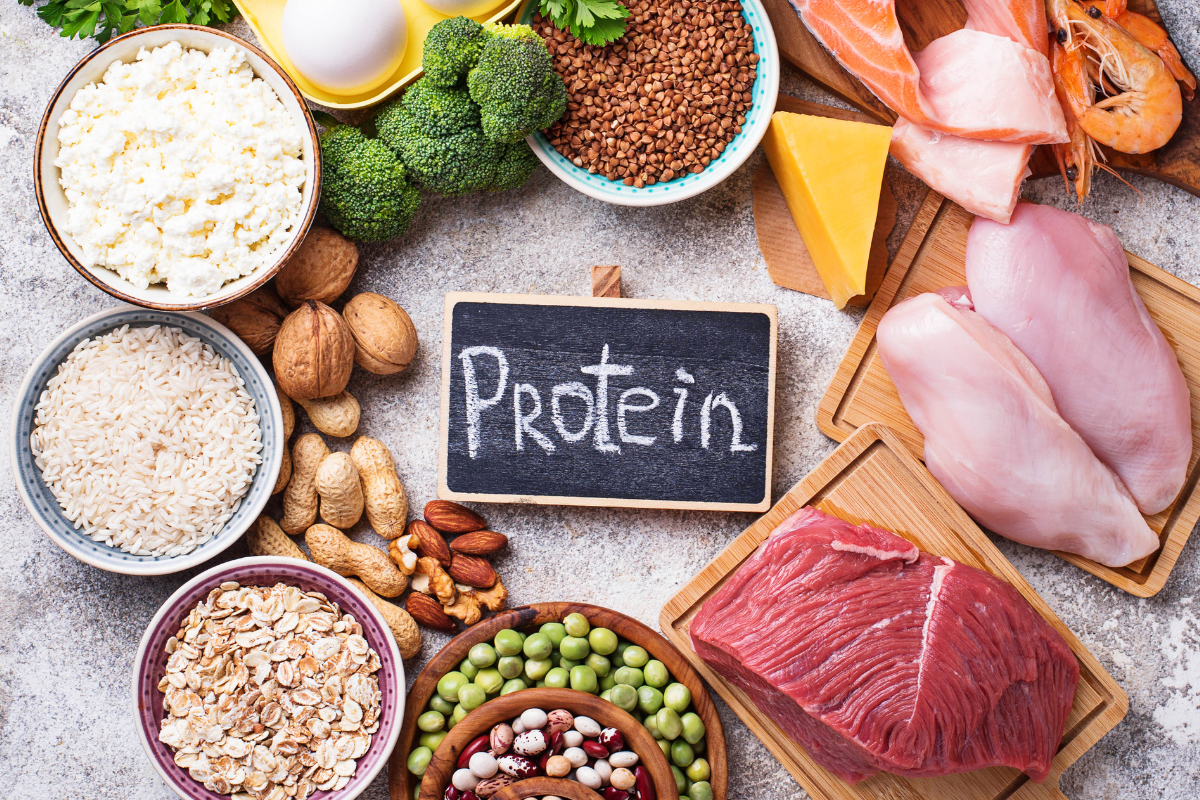Myo-Inositol 101: How It Supports Fertility and Hormone Balance
From hormone regulation to blood sugar management, there are a handful of nutrients that play starring roles in fertility—and myo-inositol has quickly become one of the most talked-about. You might see it in supplement form on store shelves, or listed as an ingredient in fertility-friendly foods (including OVU bars). But what exactly is myo-inositol, and how does it contribute to a supportive environment for conception?
In this blog, we’ll explore the basics of myo-inositol, the research behind it, and practical ways to incorporate it into your wellness routine.
1. What Is Myo-Inositol?
The “Vitamin-Like” Compound
-
Classification: Though often called a “B vitamin,” myo-inositol is technically a carbohydrate that resembles a vitamin in its structure and function.
-
Distribution in the Body: It’s found in every cell of your body and is naturally produced in the kidneys. It’s also present in certain foods, such as fruits, beans, grains, and nuts.
Different Forms of Inositol
“Inositol” is actually a family of related substances, with myo-inositol being the most common and most researched form. Another well-known type, D-chiro-inositol, sometimes pairs with myo-inositol in fertility supplements. Each form may have slightly different impacts on hormone regulation and metabolic health, but myo-inositol tends to be the standout star, especially for women’s reproductive wellness.
2. Myo-Inositol’s Role in Fertility
Supporting Insulin Sensitivity
One of the key reasons myo-inositol is popular in fertility circles is its potential impact on insulin resistance. When cells become resistant to insulin (the hormone that helps regulate blood sugar), the body can compensate by producing more insulin. Elevated insulin levels may, in turn, disrupt hormones such as estrogen and progesterone—ultimately affecting ovulation.
-
Research Highlight: A study in the European Review for Medical and Pharmacological Sciences suggests that myo-inositol supplementation can help improve insulin sensitivity, lower circulating insulin levels, and restore regular ovulatory cycles in some women.[1]
Beneficial for PCOS
Many women with polycystic ovary syndrome (PCOS) experience insulin resistance, making it harder for them to maintain stable blood sugar. High insulin can also lead to increased androgens (male hormones), contributing to irregular cycles or anovulation (lack of ovulation).
-
Myo-inositol as a PCOS Ally: Multiple studies show that myo-inositol may reduce androgen levels and improve the frequency of ovulation, thus potentially boosting fertility for some women with PCOS.[2]
Egg Quality and Early Embryonic Development
While more research is needed, there’s growing interest in myo-inositol’s possible impact on egg quality. A few small studies suggest that inositol may help optimize the environment within ovarian follicles, where eggs mature—though results vary, and it’s not a magic bullet. Still, the nutrient’s role in improving metabolic function may indirectly support egg development by reducing oxidative stress and inflammation.
3. Myo-Inositol in OVU Bars
You may notice 2 grams of myo-inositol listed on some of our OVU bars. Why include it in a snack?
-
Holistic Hormone Support: By incorporating myo-inositol into a balanced snack with 10g protein and 8g fiber, we aim to help stabilize blood sugar and reduce insulin spikes.
-
Convenience: Supplements often come in pills or powders; having a ready-to-eat form allows for an easy way to stay consistent.
-
Synergy with Other Nutrients: OVU bars also feature maca root and 2/3 cup vegetable equivalencies, creating a nutrient blend that addresses multiple facets of fertility and metabolic health.
Note: While 2 grams is a moderate serving, individuals with certain conditions (like PCOS) sometimes use higher doses. Always discuss with a healthcare provider to figure out an appropriate intake.
4. Additional Wellness Benefits
Mood and Stress Response
Myo-inositol has also caught the attention of researchers studying anxiety and mood disorders. Some evidence suggests that it may positively influence neurotransmitters like serotonin, potentially offering mild improvements in stress response and emotional well-being. While these findings are preliminary, it’s an intriguing angle—especially given how stressful fertility challenges can be.
Liver Function
Another area under investigation is the relationship between myo-inositol and fatty liver disease, a condition that can affect metabolic health. Though not directly tied to fertility, a healthier liver can certainly contribute to overall hormonal balance and nutrient absorption.
5. Recommended Dosages & Safety
General Guidelines
-
Common Dosage Range: Studies often use 2–4 grams of myo-inositol daily for fertility support, especially in the context of insulin resistance.
-
PCOS-Specific Protocols: Some protocols combine myo-inositol with D-chiro-inositol in a specific ratio (often 40:1). The science is evolving, so it’s best to follow personalized medical advice.
Potential Side Effects
Myo-inositol is considered safe and well-tolerated for most people. Mild gastrointestinal discomfort (like bloating or nausea) can occur, especially when starting a new supplement. If you have underlying conditions or you’re taking other medications, consult a healthcare professional before adding any new supplement.
In Pregnancy: While some fertility studies continue myo-inositol use into early pregnancy, research is ongoing. If you become pregnant, talk with your OB-GYN or midwife about whether to continue using myo-inositol.
6. How to Incorporate Myo-Inositol into Your Routine
Food Sources
Although myo-inositol occurs naturally in foods like beans, nuts, seeds, and cantaloupe, you might not get therapeutic levels from diet alone—especially if you’re aiming for the doses used in clinical studies.
Supplements and Functional Foods
-
Standalone Supplements: Available as powders or capsules in health food stores.
-
Functional Foods: Snacks like OVU bars conveniently include a set amount (2g) of myo-inositol per serving.
-
Combined Formulations: Some fertility blends mix myo-inositol with other vitamins like folate or vitamin D.
Tip: Pair myo-inositol intake with balanced meals or a protein-rich snack to further stabilize blood sugar and enhance absorption.
7. Frequently Asked Questions
Q: Can myo-inositol replace fertility medications (e.g., Clomid or Metformin)?
A: No. While myo-inositol can be a helpful adjunct—especially for women with insulin resistance—it doesn’t replace prescribed medications or medical interventions. Always follow your doctor’s guidance.
Q: How long does it take to see results?
A: This varies widely. Some women report more regular cycles within a few weeks; others may need 2–3 months of consistent use to notice improvements.
Q: Is myo-inositol beneficial for men’s fertility as well?
A: Preliminary research suggests it may help with sperm quality in some cases, but it’s not as extensively studied in men as it is in women. If you and your partner are exploring male fertility support, consult a healthcare professional for tailored recommendations.
8. References & Further Reading
-
Genazzani, A. D., et al. (2018). “Insulin-lowering effects of myo-inositol in polycystic ovary syndrome: A review.” European Review for Medical and Pharmacological Sciences, 22(23), 7176–7181.
-
Laganà, A. S., et al. (2019). “Myo-inositol in the treatment of women with PCOS: A 2020 review.” American Journal of Obstetrics & Gynecology MFM, 1(4).
Other Resources
-
The American College of Obstetricians and Gynecologists (ACOG)
-
Office on Women’s Health (U.S. Department of Health & Human Services)
-
Academy of Nutrition and Dietetics
Author’s Note
As someone who has personally navigated fertility challenges—and dove headfirst into nutrition research along the way—I know that every bit of reliable information can bring relief and empowerment. It’s my hope that this post inspires you to explore your dietary choices with optimism and curiosity. After all, fueling your body well isn’t just about preparing for the possibility of pregnancy; it’s also about nurturing yourself in the here and now.
If you have questions or suggestions for future blog topics, feel free to reach out! The OVU community is all about shared experiences and knowledge. We’re in this together, and we can’t wait to support your healthy, hopeful journey.
(Disclaimer: This blog is for informational purposes only and does not constitute medical advice. Always consult with a healthcare professional for personalized recommendations.)






